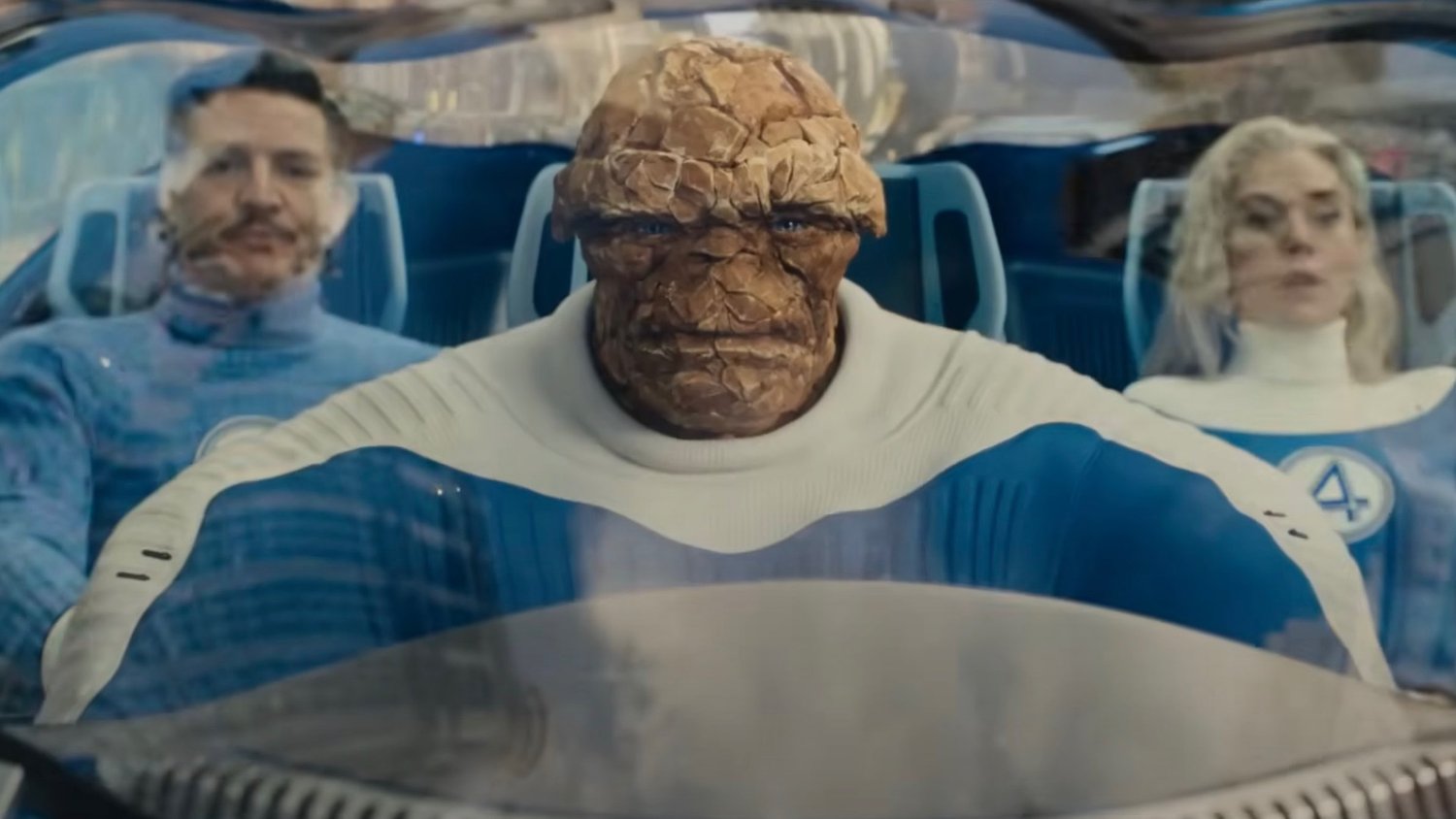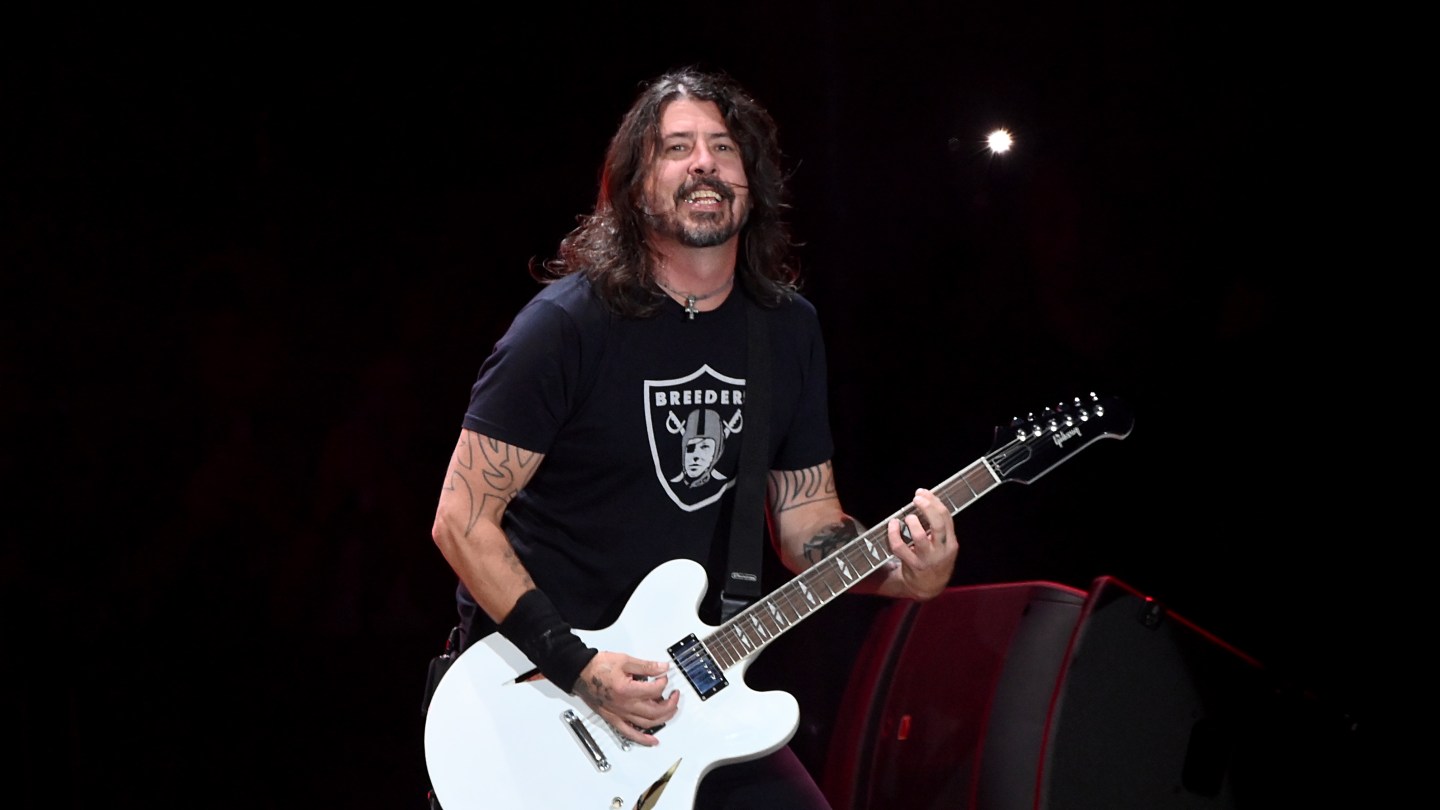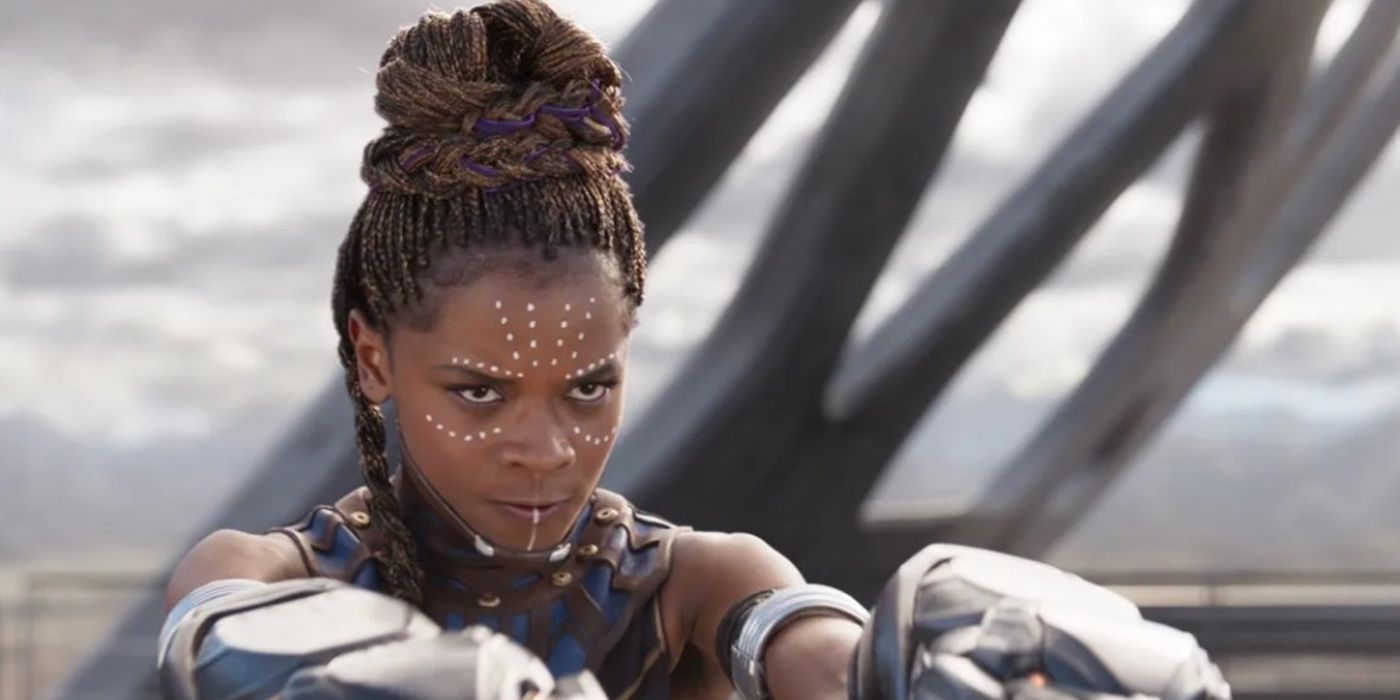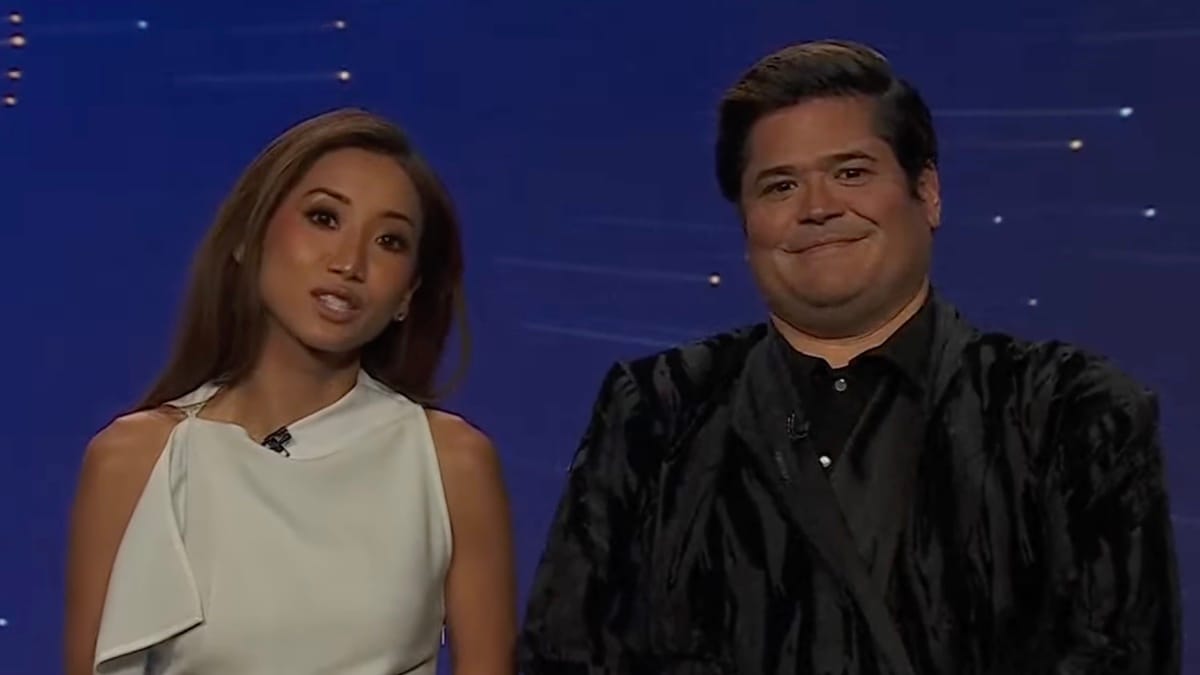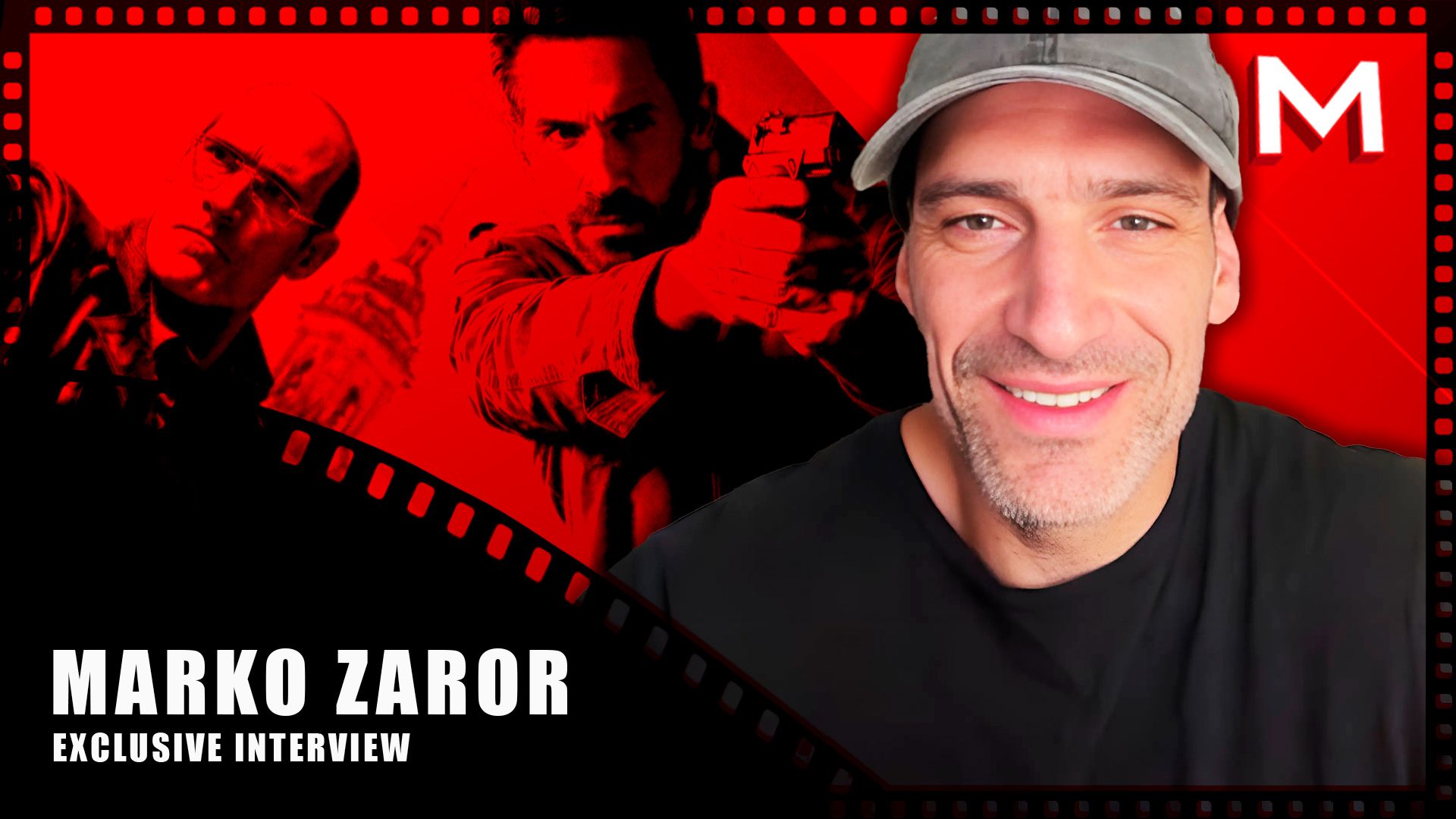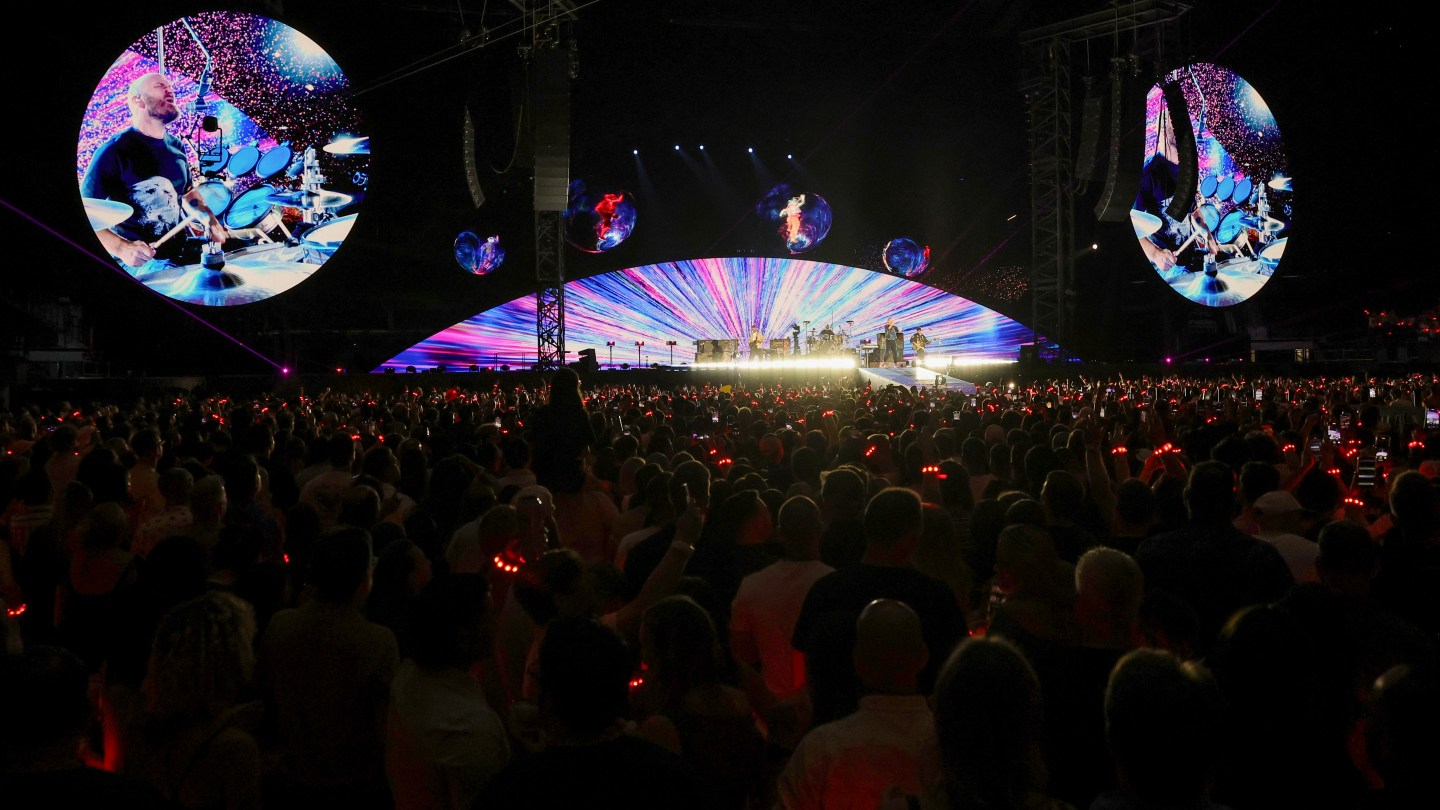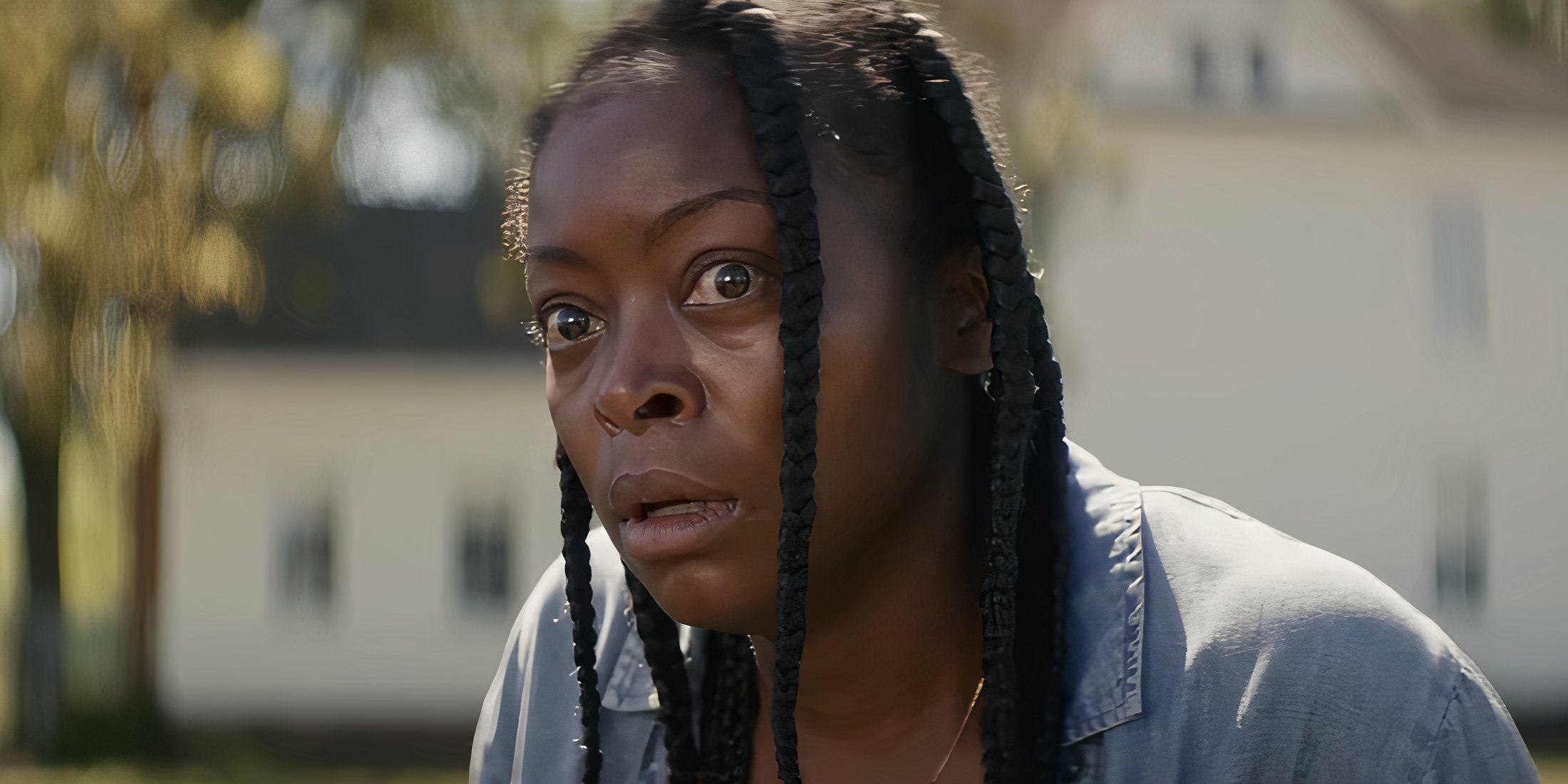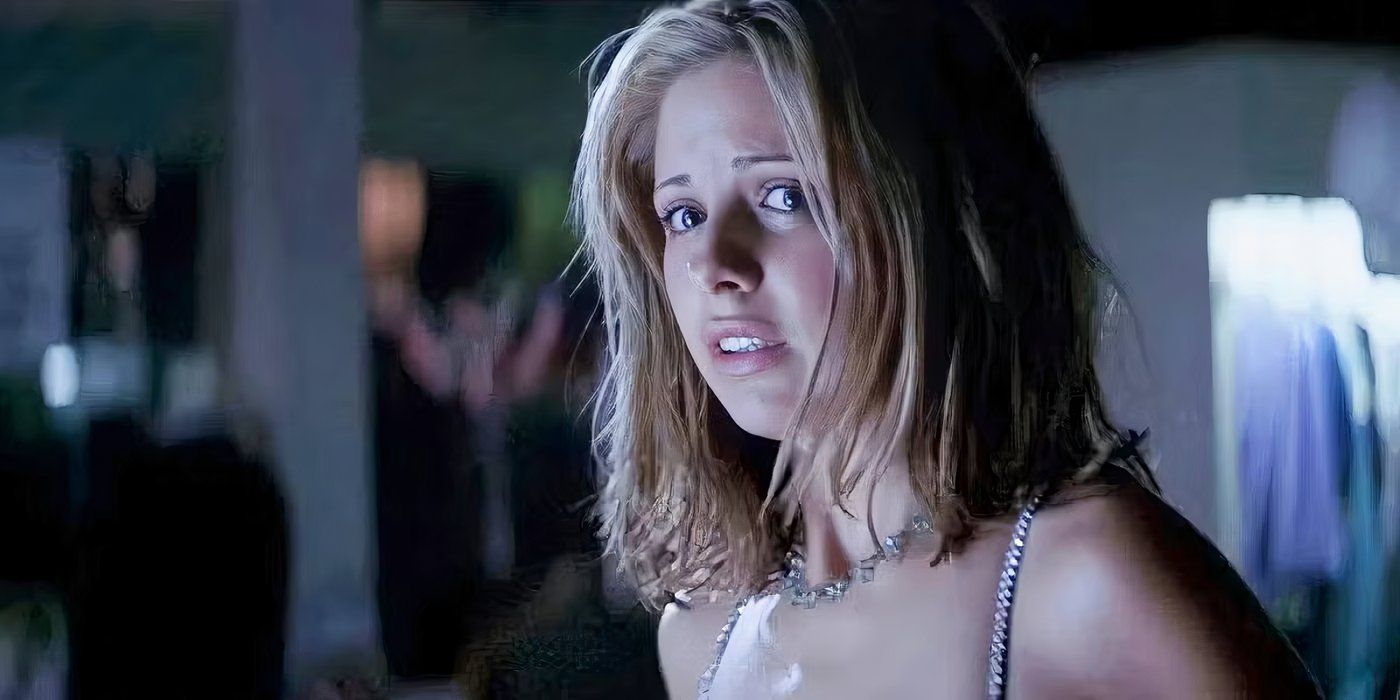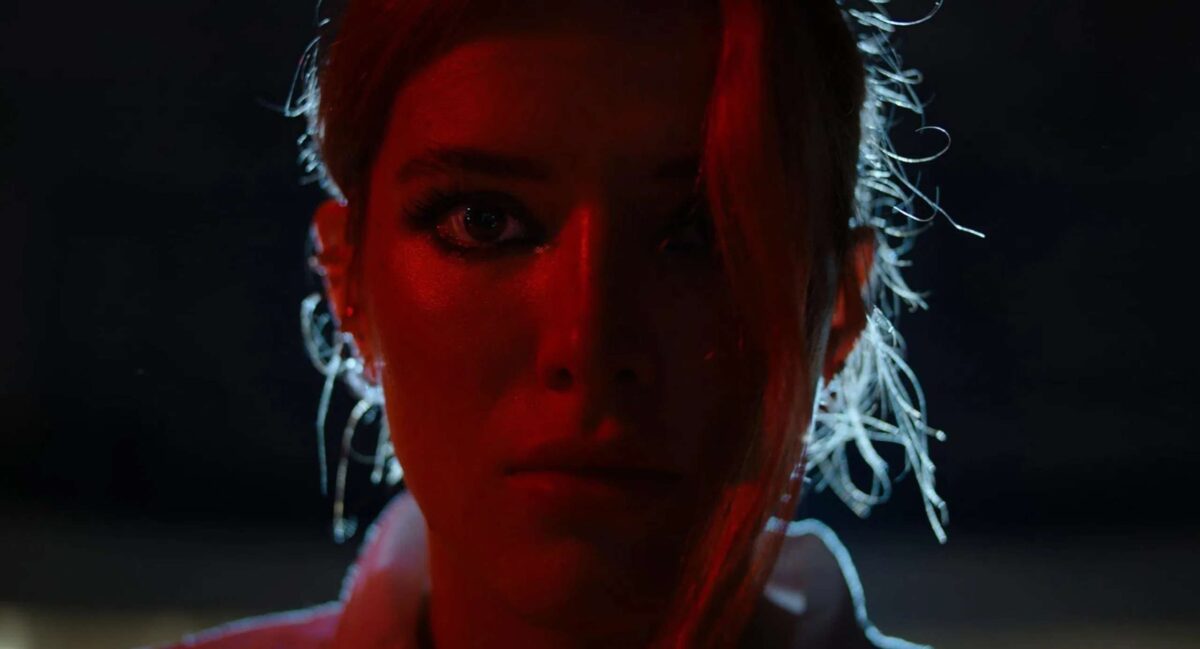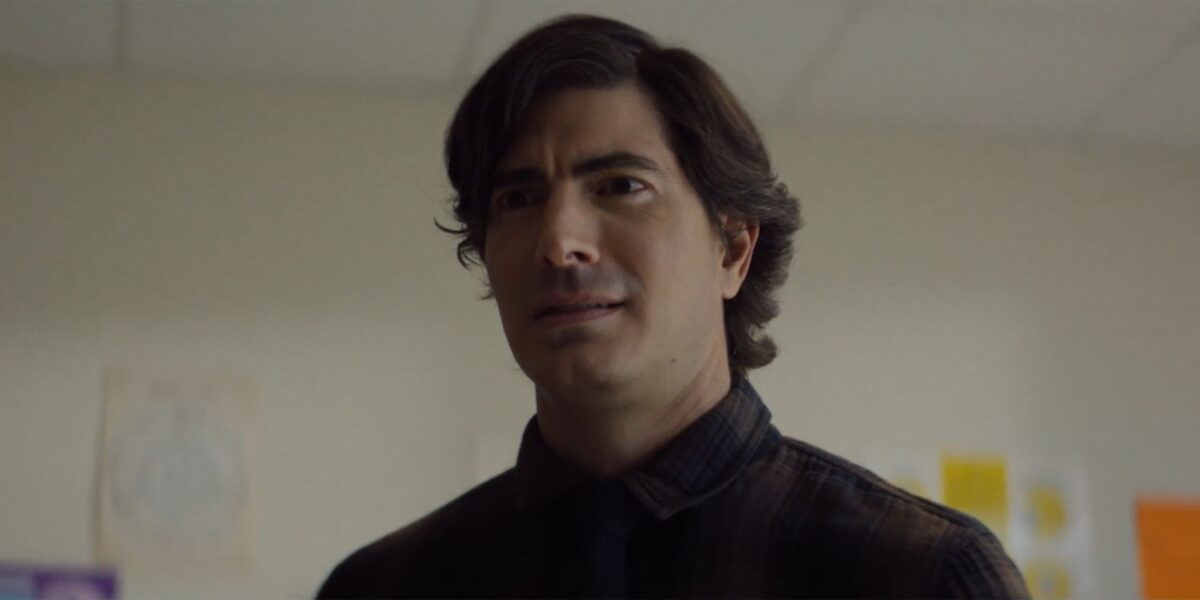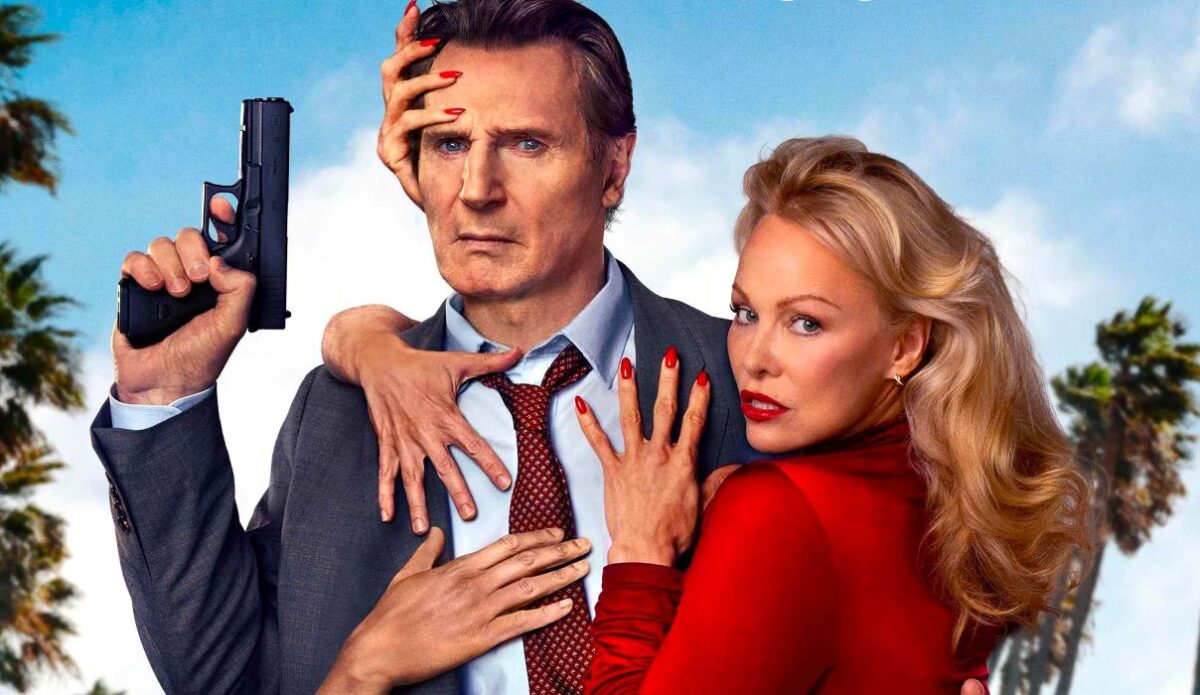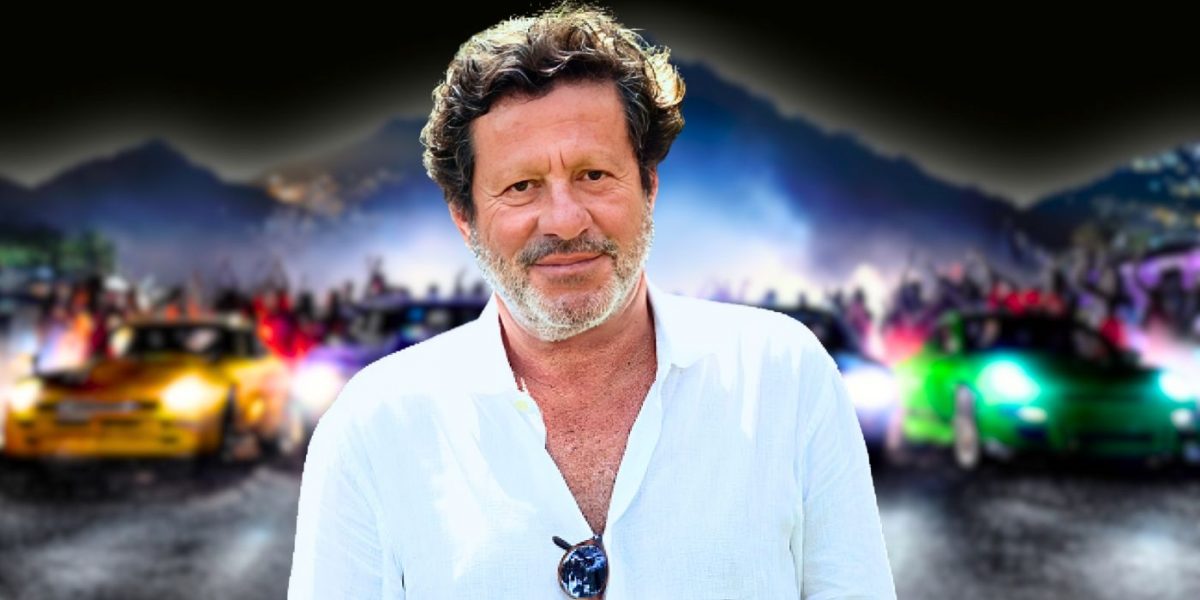
‘Fast X’s Joaquim de Almeida on Reprising His Role, ‘Warrior Nun’ & Road House
Jul 11, 2023
Joaquim de Almeida is an actor whose career spans a number of successful films and hit series, including Robert Rodriguez’s Desperado, the revived Warrior Nun series, Queen of the South, 24, and many others. Most recently, Almeida’s role as the powerful drug lord, Hernan Reyes, in Fast Five resurfaced in the franchise’s penultimate entry, Fast X. While at the Mediterrane Film Festival, Collider’s Steve Weintraub sat down with the actor to discuss that surprise return and tons more.
In their conversation, which you can read in full below, Almeida recalls the long road from studying with Lee Strasberg and Stella Adler in the 1970s to landing his first big studio feature alongside Michael Caine and Richard Gere in Beyond the Limit, to now reprising a role in one of this summer’s biggest blockbusters. We find out what his reaction was when he received that call for Fast X as Jason Momoa’s father and how he had a hand in shaping a pivotal scene in the franchise favorite, Fast Five. Almeida also talks about the fans of Warrior Nun, table reads in Puerto Rico, and becoming a bad guy in Hollywood.
Read on for more on the first-ever Mediterrane Film Festival, studying at the Lee Strasberg Theatre & Film Institute, if Pope Duretti will be returning for the revival of Netflix’s Warrior Nun, and future projects like FX’s miniseries reboot of Shogun and Doug Liman’s Road House remake.
COLLIDER: This is the first Mediterrane Film Festival, so what has your experience been like at the fest so far?
JOAQUIM DE ALMEIDA: Well, it’s funny that they invited me as being Portuguese because we’re not really Mediterranean. I mean, maybe you can say we have a Mediterranean kind of weather but the Mediterranean starts in Spain. Having said that, I think it’s a great idea. I think they organized it so fast, trying to get the funds from the Mediterranean countries. But it’s interesting because we have a lot of things in common in the difficulties of making movies. Some, like Spain and France, have a real industry. The rest of the countries in the Mediterranean have a smaller industry. So, it’s good to have this intercommunication.
It started in Malta. I didn’t know Malta. I was very curious to come here. At first I said, “Well, I’ll only go for three days.” Then somebody told me, “No, no, no, go. Stay all week because it’s really a place to see.” It’s a crossing of very different civilizations here in Malta. I don’t know if you went to the Medina, but you have the Medina, then, I mean, all the Romans were here, the Arabs were here. The Christians founded to protect themselves against the Turks. So you find all these different mixtures of civilization, and the language itself is a mixture of different languages. Part of it I understand sometimes because it’s Italian, it’s Spanish, and then it’s Arabic. [Laughs] That’s the part I don’t get.
So, I’ve been having a great time, I’ve been having a great time. I was telling the president of the film commission yesterday, “Listen, nobody believed you would be able to pull this off in a few months, and you did it. Yes, there are things that maybe you have to fix,” because the jury was telling me, “Man, we didn’t meet until the last day. We should have met. We should have talked because we all saw the films at home.” It’s kind of a crazy way, but I think it has to do with the times now.
I’ve been on the jury for a lot of festivals, and my experience is we watched the movies together and we discussed every three days the movies we had seen. I don’t know how many movies they had to see here, but I’ve been in festivals where we had to see a lot of movies. It was kind of a bonding experience with other filmmakers here. Here, I think they have to learn that. He told me, “Well, we understood that. We have to change that.” But I think, overall, it’s really good. We had a lot of people at this round table, and next door, they had some other things for kids and it was crowded. So I think people are paying attention. They’re coming.
What I like is that you have different workshops. It’s not just the movies in itself. It’s the working of the movies, it’s the production, it’s all parts of making movies. I find that it’s very good to have these different workshops. It looks like people are paying attention. I’m amazed, and I think Malta can teach. Like in Portugal, years ago, I was president of the film commission, even though I lived in the States, and I tried to make studios in the south. Now, it seems they’re doing it. I tried to get the government to help with tax assistance and I couldn’t get anything done 15 years ago. Now it’s happening. I look at Malta; they have maybe the biggest, with Spain, film services in Europe. They have these big movies being done here, they have good tax incentives, and they are building a new studio. So for a small island like Malta, it’s quite amazing what they are doing. So, going back to the festival. Yes, I think it’s what they needed to complement what they’re doing in terms of film services.
Image via NBCUniversal
No first-year festival is ever going to get it right. You learn. I’m sure next year will be even better. I read that you speak five or six languages.
ALMEIDA: Yes.
How did you pull that off?
ALMEIDA: Well, I speak six languages because my father spoke in quite a few languages. We had eight kids and he wanted us all to speak an extra language, at least, so we had to learn French and English in school. We went to a German school, so we learned German, too, so that was my first foreign language. Then I lived in Vienna in ‘76 before going to the States. Then the other languages I picked up along the way, especially in New York. And if you have an ear for languages, you know?
Right now, I have a series on Netflix called Ganglands in English, which is called Braqueurs. I’m a Venezuelan that speaks French, and I speak French quite good. I’ve done quite a few films in Italian, Spanish, and many Portuguese. German is the only language I don’t work in. I work in five languages. I’ve done Chinese for two weeks in the film, learning phonetically, and I’ve done Romanian, also learning it phonetically. But some people have a great ear for music, they pick it up. I have a great ear for languages, for accents in each language.
I was selling today on the round table, it’s one of the good things today that helps you a lot because if you are a European and Americans come and do a series in Europe, they use European accents. They like our accents. They want the accent. You’ll never do an American. But if you speak different languages, that’s how I started, by speaking different languages. They cast me as a French, I do a little French accent. Italian, I speak more with an Italian accent. I used to do voiceovers in different accents for commercials. Then the Spanish. I have an accent that, today, is not really a Portuguese accent. It’s 47 years in the States, arriving as an adult already so I never lost the accent, but it’s an accent that’s not even Portuguese. I don’t know what it is. It’s a mixed accent. So it goes for everything, you know?
Yeah, they just know that you’re not from America.
ALMEIDA: They know I’m not from America. They don’t know where I’m from, so if I speak French at the same time, it’s always French. If I speak Spanish, always Spanish. If I speak Italian… [Laughs]
Sure.
ALMEIDA: But I always put a little French, a little Italian, whatever the character. Never too strong because otherwise it becomes annoying. But yes, I was telling these people today at the round table English is a must if you want to do international films. But you know, any other language that you pick up, it helps you in any way.
The biggest problem, of course, is people like me who are not good even with English. I’m joking, but I have a tough time with other languages. I don’t have the ear for it.
ALMEIDA: Let me tell you something, there’s an actress I love, Nicole Kidman. I started doing a movie, The Interpreter, and when she spoke French I completely did not believe anymore that she was an interpreter because her French was not good. So it’s important. I was amazed, like, “How can she do this? Her French is not good enough for us to believe she’s an interpreter at the United Nations.”
Image via Universal Studios
Sure.
ALMEIDA: You have to be completely fluent and she was certainly not fluent.
Yeah, and it could be a combination with her. It might have been that she got the role at the last minute, didn’t have time to prep, or could be she just doesn’t have an ear for accents.
ALMEIDA: Yeah, she had an American accent. She’s actually born in Hawaii. Everybody says she’s Australian, but she was born in Hawaii, raised in Australia, I think. So, she’s American.
Yeah, either way. So I read that you studied at the Lee Strasberg in New York.
ALMEIDA: Yeah, with Lee Strasberg, from ‘76 to ‘81.
I love talking to actors about how they studied. What was that like for you studying because in New York City at the time, that was the thing.
ALMEIDA: Yes, Lee had these classes, and it was for us at the time, a young guy, it was expensive to study with Lee. It was like $1,000 for a month for the class. I learned with Lee. I learned to know how to express my emotions, I learned how to bring them out. I learned with all these exercises. But it wasn’t just Lee for me. I took Stella Adler’s script interpretation class that was, for me, one of the best classes that taught me a lot. We had Nicholas Ray, the director, that gave us acting for the camera.
I got really great encouragement from Lee. Lee called me aside one day and said, “Listen, all these people that pay for the classes, they have to live here and we have to give them the chance to be here, but I just called you because you seem to understand what I’m teaching here. You are maybe one of the few that’s gonna be an actor in this class.” So, that gave me encouragement, you know, because I would see these other people and say, “What the fuck are they doing?” At the same time, you had professional actors taking the class, and so you learned with them too.
Nick Ray was a great encouragement. He gave me a scholarship to keep studying with him at NYU. I did two classes with him at NYU and then he got sick with cancer. We became good friends. We went to his house, and we used to play Backgammon. He was a big Backgammon player. Again, he encouraged me. He took the class aside one day and said, “Okay, I want you guys to watch this monologue that Joaquim did.” I had a monologue from Caligula, and he said, “Okay, this is an example of a leading actor,” which I was for many years in Europe, especially. Because I always did my American thing and my European thing among the films. I think I’ve done more things in Europe than I’ve done in the States. Now people recognize me all over the world, more for the American things because they travel all over the world. The European things don’t travel so much. Therefore, I always get the bad guy. [Laughs]
So, yes, the Strasberg thing. It wasn’t the actor studio, it was the Strasberg Institute, the actor studio. I auditioned…and then I started working, and I was never that crazy about the method, like [Al] Pacino is. Like I said, he taught me how to discover my emotions, to discover the relaxation in it. I learned a lot from the Stella Adler script interpretation. How to study a character, how to create it, and how to come about the character. I think that was a class that really helped me a lot too. So there was a mixture of these three teachers and then the best lesson of all: working.
Yeah, exactly.
ALMEIDA: Right away, on my second film (Beyond the Limit) I worked with Michael Caine, Richard Gere, Bob Hoskins. But for Michael Caine, I learned a lot of respect. He’s an actor that gives a lot, and I learned a lot by watching him with a great director that died already, Scottish director John Mackenzie. John had the patience for my questions and to teach me when I said, “What did Michael do? Why is he giving me different chances to cut?” So I learned a lot. I had a chance to work with great actors all over the world, from Marcello Mastroianni to Gene Hackman to Harrison Ford. So many. And actresses, too, either in Spain or in the States; Sandra Bullock, Kim Basinger.
It’s a give-and-take. Acting is a give-and-take. When I find actors that are too much into themselves, I just don’t have the patience anymore because acting is about giving and taking. It’s about listening. When you have these young—and it happens a lot more in television—you have these young actors that have become now popular because they’re doing a series, and sometimes it’s all about them, you know? And you go, “What am I doing?” [Laughs] But hey, there’s everything in this profession. You work with directors you love, you work with directors you don’t like so much. Maybe one or two I didn’t like working with at all. And sometimes that happens when you do television because each episode is a different director. All of a sudden, you’re working with the director you really went along with, and then you get another one that is totally, completely different, and you’re doing the same character, and you feel like telling him, “I’ve been doing this character for a while. What are you telling me?”
Hey, it’s like you get to be 66 years old, you work for 42 years, did over, between films and television, 150 films and television shows, and you say to yourself, “Listen, I’m lucky. I haven’t stopped working,” you know? And that’s the other thing in this profession is you have to reinvent yourself. There are very busy years, less busy years, and, I think especially choosing what you do, too, because people remember you for the last thing you did. Even if you do small parts here and small parts there, then you do big parts, you gotta keep your face showing up.
Completely. I live in LA and have a lot of friends that are actors and I know the ebbs and flows, and the truth is, to manage a career that goes decades is winning the lottery. It’s really hard to do.
ALMEIDA: Yeah, because you never know. I know a lot of friends that they gave up. They’re doing other things.
Yeah, you have to be a good actor and you gotta get lucky.
ALMEIDA: Oh, luck is the start of the whole thing.
Absolutely.
ALMEIDA: I worked with very established actors that took them forever to get the first show. It took them forever to get an agent. I was lucky. This casting director from Paramount saw me in a play, called me to come see her, and she wrote to some agents. The first agent sends me out, I booked the first two jobs. It was a commercial and a film, and they signed me. Obviously, the first two things that she sends me to I get the jobs and get signed, you say, “Shit, this isn’t so bad.” But you have to put yourself there. That’s what I tell my son that’s 30 years old and he hasn’t done enough to keep a steady job. I say, “Listen, if you’re not working, go do theater without being paid off-Broadway. People will see you. Keep the thing going.” That’s what I was doing, I was doing off off-Broadway shows.
Yeah, and also you’re refining your craft.
ALMEIDA: Exactly. You have to expose yourself. You have to keep doing it. Exactly. Plus, at the time, my English wasn’t that great, and I had to practice it in front of people. I did theater. I was never a theater animal. I mean, I did theater because I have to do theater to get to the movies. I haven’t done a play since my kid was– since his mother was pregnant with him. So, for 31 years. I’d done a bunch of plays then, before that, but then I started doing movies, and when you start doing movies, that’s what you like. Then, I didn’t even do television because we didn’t do television. We were movie actors. We didn’t want to do television. Television was the whole thing that came much later.
So you have done over 150 projects that you can watch. If someone has never seen anything you’ve done before, what is the first thing you’d like them watching and why?
ALMEIDA: I’m very proud of Good Morning, Babylon with the Taviani brothers because that not only opened the Cannes Film Festival in 1987, that made me the next year. Once I did the interviews, they said, “Fuck, this guy does interviews in five languages.”
Exactly.
ALMEIDA: I did four films the next year in four different languages. So that was a plus, you know, that I started an international career. I’m very proud of Desperado. Desperado also kind of made me the bad guy of the movies because right after I did Clear and Present Danger, even if I had Only You, which was a great comedy thing with Robert Downey Jr., Marisa Tomei, and Bonnie Hunt, and that became very popular over the years, you know, once a bad guy you are a bad guy. [Laughs]
Yeah, but the good news is bad guys get work.
ALMEIDA: Oh no, I know. Listen, I said at a point to my manager, “No. Let’s stop doing bad guys for a while because otherwise, I won’t get out of it.” Then I said, “I’m losing too much money! Let’s go back to the bad guys.” [Laughs] Plus, I enjoy them.
Sure.
ALMEIDA: It’s a thrill. They have to find something else to do with the bad guys, you know? I’ve had directors that said, “Well, I wrote this thinking of you because I like you as a bad guy, so when I wrote it, I thought of you.” And you say, “Okay, that’s a signal.” But even this French film thing, he wrote the thing having me in mind for the character. He didn’t know if I would do it or not, but he called him “Temporarily Almeida,” and then we left the name. We decided, “Let’s leave the name.”
That’s funny. Obviously, like everybody else, I love Fast Five. I have to talk about it. When you were making the movie, did you realize how special it would be? Because for everyone, including myself, Fast Five is the best movie in that franchise.
ALMEIDA: Well, while I was reading things of what they were expecting for Fast X, a lot of the Fast & Furious fans, they think Fast Five is the best.
There’s not even a debate. It’s Fast Five and then everything else.
ALMEIDA: I had a great time doing it because, I mean, it was ridiculous. [Laughs]
[Laughs] Exactly.
ALMEIDA: I said, “It’s obvious we can’t shoot this in Rio because everybody that knows Rio has five streets, then…maybe another four this way because then you have the mountains, so there’s no way we’re gonna stop Rio.” I couldn’t believe that the bridge in Puerto Rico that stands for the bridge in Brazil. I mean, it worked perfectly. Plus, we could throw away the box over the bridge.
Now, when my agent said, “They want you back for Fast X,” I said, “What? They want me back? I’m dead.” “Yeah, but there are flashbacks.” Then I read the thing, and I said, “Who’s doing my son?” They said, “Jason Momoa.” I said, “Jason Momoa?! How the fuck?” So, I used to joke with him when we were shooting. I said, “Jason, man, you’re mama is so big. It was really tough.” [Laughs] Because how would you have a son that big?
No, but I had no idea because I had not seen Fast & Furious until they offered me Fast Five. And I said, “Okay, I have worked with Paul Walker and Bobby Z.” We had done a film together, and I like Paul Walker. Paul Walker was a really, really nice guy. So I watched, I think number two or something, and I watched the fourth, which was Japan, right?
[The Fast and Furious: Tokyo Drift] was three.
ALMEIDA: I wasn’t crazy about that. Then I said to myself, “Listen, it’s not hard to do a bad guy better than these guys,” because I didn’t like it. I said, “I think I can do a much better bad guy.” Then she had this big scene with these other two guys, negotiating with them, telling them about the story of Brazil. I had to change that scene. I asked the director, Justin Lin, I told him, “Justin, I can’t say this. I’m Portuguese, and this is completely incorrect historically, so we have to change the scene.”
He changed it for me. He gave me the new scene like the day before because I was just like, “Justin, I can’t do this. This is incorrect. If I do this in Brazilian, they’ll say, ‘What the fuck is he talking about?’ Because I know this is incorrect.” Because they had the Spanish arriving first in Brazil. The Spanish never arrived there first in Brazil. When Portugal and Spain divided the world in two to discover, Portugal asked for a part here, and we were dividing in two because we were giving them Morocco. We gave them Ceuta and Tangia…so we already knew there was there. So they rewrote it, and I felt very proud because I said, “Well, at least I’m defending the thing,” but it was fun.
For me, it was a big vacation. I was a month in Puerto Rico, mainly on the beach [laughs], and then we shot in Atlanta. It was fun. I didn’t have big chases—well, we have the chases, but you don’t really have them because we do them all against the green screen. We didn’t shoot in Brazil, we shot for four days in Brazil. We shot everything in Puerto Rico and Atlanta and everybody’s convinced that the whole thing is shot in Rio. That’s the thing about movie-making.
Well, if you do good establishing shots the regular people don’t realize.
ALMEIDA: No, plus what they did was they built the favela in Puerto Rico, and then they would CGI the rest of the favela, so you totally believed it.
Absolutely. So what did your friends and family think when they asked you to come back for Fast X? Were they like, “Get the hell out of here?”
ALMEIDA: You know, my son loved it. I said, “Listen, let me read this.” So I started reading, and I said, “Wait a minute,” because you can go on the computer and see where my scenes are. I said, “Listen, this is all a flashback. I have this scene in the beginning with Jason Momoa, who’s my son, and then they’re doing these flashbacks. I guess they’re gonna use some of the film from the thing.” So I said, “I’m not gonna bother reading this whole thing because I remember that.”
I thought it was the most incredible thing when they asked us all to go to Puerto Rico to read Fast Five for a table reading. I said, “A table reading? The guy that’s gonna talk most of the time is the assistant director…” We had a little dialogue here and there. So I said, “We’re all flying to Puerto Rico for a table reading? Alright, let’s do it. Why not?”
Yeah, that’s bananas. Were you surprised about Warrior Nun? You did some episodes of that and that’s a very popular show with a lot of people.
ALMEIDA: Well, what I’m surprised by is something a friend sent me; they’re picking it up!
That’s what I wanted to ask you about.
ALMEIDA: I don’t know. You know Netflix dropped it?
100%.
ALMEIDA: The fans put a thing in Times Square, then they went in front of Netflix, “Bring back Warrior Nun.” The creator, [Simon] Barry, very sad, said, “I’m gonna try to take it somewhere else.” But I think it’s Netflix that’s gonna bring it back. So, I guess the popular demand may then bring it back.
First of all, the thing that’s crazy about it is, these things generally don’t happen and it’s been a little while. It’s weird.
ALMEIDA: You see, because of COVID, it took us a long time to do the second season. Then we had to do it with all this of COVID thing in Madrid. Shot all summer in Madrid. I mean, Madrid is very hot in the summer and we had to be eight days without leaving the room. It was a tough shoot. Then we all complained, and then they all let us go and rent apartments. But right now, for them to restart it, I think—unless Simon Barry has…already [written] some of the shows—I mean, it’s gonna take time.
I really don’t know because of the writers’ strike and everything with SAG going on strike. Who knows? But I think for fans it’s really cool.
ALMEIDA: But they had to let the actors go.
That’s what I was going to ask you because now it becomes something where what you can do is you can say it’s five years later. You jump forward, and then all of a sudden, you can have different actors. You can do a lot of different things.
ALMEIDA: You can bring the ones from the dead, too, because it’s that type of show. Simon said, “Well, we’ll kill you now, but we might bring you back.” Because it’s that type of show.
As an actor, that has to be fun when it’s like, “You never know.”
ALMEIDA: You never know. It was a fun show to do, other than it wasn’t the most comfortable show to do because we shot in the summer. Part of it, when we started the first season, was okay because we shot in Malaga up in the mountains, too. It wasn’t so hot. But then we shot in Seville, and Seville in the summer is… Then the second season was supposed to be in different places. They said because of COVID, we would stay in Madrid, and god was it hot in Madrid. I mean, I’m dressed as a pope. [Laughs]
No, but we had a good time. I mean, those girls, they had the best stunts. They had really nice stunts. They were really believable. We had to stay all in the same hotel for a while, you know… but it was COVID, we couldn’t really meet. It reminded me of movies that I did when we would all be on vacation, all in the same hotel, and you were part of a family. But Warrior Nun? I don’t know. I had a great time. I wouldn’t mind coming back. Maybe not the next season, but another season.
The interesting thing about that is, that’s a different kind of fan base when they see you than the people like me when I’m thinking about Fast Five or those kinds of movies.
ALMEIDA: It’s all different. Exactly. Warrior Nun is a very specific type of people, but they’re very big fans. I mean, they got together to pay for that thing to put in Times Square. That costs money. I see from the comments people made on social media now and you can tell that the fans are not the same fans. They’re different fans because it’s a different type of movie.
Sure.
ALMEIDA: Maybe they are the same guys that like the Marvel things, I don’t know.
Image via Netflix
I know what you mean. You’re part of the Road House reboot or remake, right?
ALMEIDA: Yes. I play the sheriff, which is the father of the lead actress. She’s one of the young Portuguese actresses. She’s also in Fast X, Daniela Melchior. I was at dinner with her yesterday. Daniela is 26, so she’s now the new generation. She can live in Portugal. It’s not like how I had to go to America because in those days we had to go if we wanted to do movies. Now she has already grown big offers everywhere that are affected, now, by the strike. We shot in the summer in the Dominican Republic. Very hot and tough.
[Laughs] You think just like me when I think about a film shoot when I visit a set. The things I remember: the weather and how hot it was.
ALMEIDA: Because it’s fucking hot.
Yeah, it’s crazy and humid.
ALMEIDA: See, but in Madrid, it’s hot but it’s dry. So, even if I was dressed as a pope, I wasn’t sweating. Over there, I couldn’t stop sweating. I did Missing, too. Missing was in Cartagena, and it was as hot, but there, I didn’t have to care if the character is completely sweaty, the character was that. But when you’re playing the sheriff, you don’t wanna be…
It wasn’t one of my favorite shootings because I didn’t have a part. I almost didn’t take the part, then I took the part because my manager said, “Listen, it’s gonna be a big movie. You should be in it.”
It is gonna be a big movie.
ALMEIDA: Okay, the reason was, they had me shoot a few days here and a few days here.
Oh, so you had a long break?
ALMEIDA: No, but that didn’t matter. That was okay, but they didn’t respect this. I shot a few days here, then they brought me back a few days here, then I went again, and then they brought me back a few days there. That was the fun part was that all of a sudden, I was all over the place. I didn’t have a part big enough to me to get involved. When you do a movie that big, you wanna be involved. It’s very strange that a producer like Joel Silver, big producer, stops me in a restaurant and says, “Man, I like your work a lot. One day we’ll work together.” One year later, we’re working together. So it’s kind of a funny thing, but I don’t know.
I think the movie’s gonna be big. You’ve got [Conor] McGregor there. Jake Gyllenhaal is a good actor. He looks like the fucking…
Image via Conor McGregor
Yeah, he got buff for the film.
ALMEIDA: Oh man. No, really buff. And then there’s McGregor that brings a lot of the UFC fans. So, I think the thing is gonna work.
Well, that’s what I’m trying to say is that your agent is right. It is gonna be a big movie. Also, all the stuff that they filmed at the UFC weigh-in, that all went viral. All that stuff got out there when they were filming.
ALMEIDA: Yeah, there you go. And then they did reshoots in New Orleans, I believe so.
What’s interesting about the director Doug Liman, and you sort of touched on it, is he likes to reshoot things. He’ll shoot something, and then he likes to redo it.
ALMEIDA: He likes to have people around all the time. I said to my manager, “Well if they want me around there for that amount of time, they gotta pay me.”
Definitely.
ALMEIDA: At the end they had to pay me some more money because I said, “I gotta get out of here.” I had another thing to do in Paris. I said, “What are they doing? I gotta go!”
Yeah, that’s scheduling.
ALMEIDA: Yeah…and then we reshot the scene, the same scene, in three different ways.
So, another project that you’re involved with that I’ve spoken to a few people that made it is Shogun the remake. Everyone I spoke to said the sets were crazy, it’s this huge production. What can you say about your role in it?
ALMEIDA: They offered me another role that had four episodes, and I said to my agents, “Listen, I’m not gonna do it because it’s not an interesting role.” If I did that, I couldn’t do Ganglands, and I already had told the director I was gonna do Ganglands. My agent said, “No, but this is gonna be bigger than Ganglands.” Listen, Ganglands has an incredible following in France. For me, it’s interesting because I want to keep working in France, and this character, the father, whatever it was, it was a priest, it wasn’t that interesting.
So they offered me the Father Domingo, and I said that one I’d do because it’s so much more interesting. I have, in one episode, much more work than I would have in the other four episodes of the other character. It really made a big difference, and I had so much more to do with this character.
The sets were incredible, but not only the sets. They did it the right way, they did it with Japanese actors, right? So they are all Japanese [actors] that came for the first time out of Japan to shoot in Canada, and the sets were quite amazing.
Yeah, I think it was Vancouver if I remember.
ALMEIDA: Yeah, we shot in Vancouver.
The people I know that were involved told me that it’s a big production.
ALMEIDA: It’s enormous. I was there in real-time, but you could tell by the sets. And my scene was also the lead actor, and that made a big difference. [Shows an image of his costume]
Oh wow! Yeah, people are not going to recognize you. Did you ever leave set with that beard and be anonymous? Because people are going to treat you way differently.
ALMEIDA: [Laughs] No, but that’s funny. So this character, when I read it, I said, “Okay, that’s what I wanna do.”
And that’s one episode?
ALMEIDA: It’s one episode. This one I did in November. In December, I came back to Europe because it was Christmas, and I started shooting in January. So I had time to study because when we did the reading in France, the director at the end said, “Okay, definitely Joaquim has more lines than anybody else in the series.” It’s French and Spanish for me, so I had to work on it. But Shogun, I think it’s gonna be good. I had to say something in Japanese that I still know: “Please make a place for my friend,” “Watashi no yūjin no tame ni basho o tsukutte kudasai.” See how big it is to say, “Please make a place for my friend?”
I’m really looking forward to the remake just because I think that it’s being done right and it’s an interesting story.
ALMEIDA: Yeah, it’s more what the book is about, it’s not like the Richard Chamberlain thing.
Exactly.
ALMEIDA: The Richard Chamberlain thing, everything was a little pretty.
Yeah, but this is also the product of nowadays. You can go for gritty realism. You can do way more things that you couldn’t do 40 years ago.
ALMEIDA: I’m telling you, that prison, it was all made the old way, all in wood.
That’s my point.
ALMEIDA: It looked pretty good. They did a good job. I think they shot for…
A long time.
ALMEIDA: Six months or something?
A long time.
ALMEIDA: Long time. Believe me, that was another thing. In Vancouver, we were there for five weeks. It didn’t rain for four days in the winter. I’ve been there in the summer, it’s beautiful, but in the winter, I couldn’t live in Vancouver.
I’ve been to Vancouver a number of times. It used to be a place where more things were shot, but the tax rebates have brought productions to other places. Vancouver used to be the place that had a tax break.
ALMEIDA: I shot more in Toronto than I shot in Vancouver.
Toronto also has bigger sound stages. It’s more of a filming center, I think.
ALMEIDA: It’s very hot in the summer, too.
Are there things that you’re thinking about doing in the future?
ALMEIDA: Well, right now I’m redoing my house in Portugal. It’s been seven months already. I only left the walls. I did new electricity, I put the radiant floor, the heat comes from the floor, two floors, four new bathrooms, new kitchen. I did everything new, the electricity, I took all the plumbing, everything. So the only thing that is gonna look the same is from outside. Inside is a new house. So I wasn’t so bad.
This year started the strike, you know, so I’m gonna do a thing in France. It’s a smaller film because it’s about a scandal that existed, the case…was an Italian guy who had to do with the smoking industry, and I’m playing the guy that was the president of the European Union, which was Portuguese. So I’m going to do that in August. Everything else is, in the States, I have a series that they are talking to me about, but nobody is doing anything.
Well, everything is on pause. Everything.
ALMEIDA: So I have another friend here in Spain, too, that wants me to do this film. So right now, I’m doing the film in France, finishing my house, and then let’s see where the strike takes us.
You can catch Almeida in Fast X in theaters now. For more on Liman’s upcoming Road House, check out Collider’s interview with the cast of Netflix’s FUBAR below.
Publisher: Source link
Seth Rogen and Rose Byrne’s Friendship Faces New Challenges in One of the Year’s Best Comedy Series
Apple TV+'s Platonic, a celebration of complicated friendships hailing from co-creators Francesca Delbanco and Nicholas Stoller, is finally back. The show's brilliant Season 1 saw complicated besties Will (Seth Rogen) and Sylvia (Rose Byrne) overcoming Will's divorce, Sylvia's relationship issues,…
Aug 2, 2025
A Disjointed Reel of Edgy Ideas
Mitzi Peirone’s Saint Clare, based on Don Roff’s novel Clare at Sixteen, is a film that sets its sights on being a subversive, blood-tinged thriller about faith, trauma, and psychopathy. With a leading performance by the underrated Bella Thorne, a…
Aug 1, 2025
I’m This Dark Comedy Horror’s Target Audience & I Couldn’t Love This Nostalgia-Baiting Movie More Than I Already Do
Ick is a fun, nostalgia-packed horror film that I loved every second of. Directed by Joseph Kahn and starring Brandon Routh as a former high school all-star jock whose dreams failed to carry him beyond an injury, Ick blends alien…
Aug 1, 2025
A Hilarious, Much-Needed Shot In The Arm For Studio Comedies
In the background of a shot in the Police Squad headquarters, men emerge through a doorway marked “COLD CASES” from what appears to be a giant freezer. No character ever comments on it. This clever play on words has no…
Aug 1, 2025
